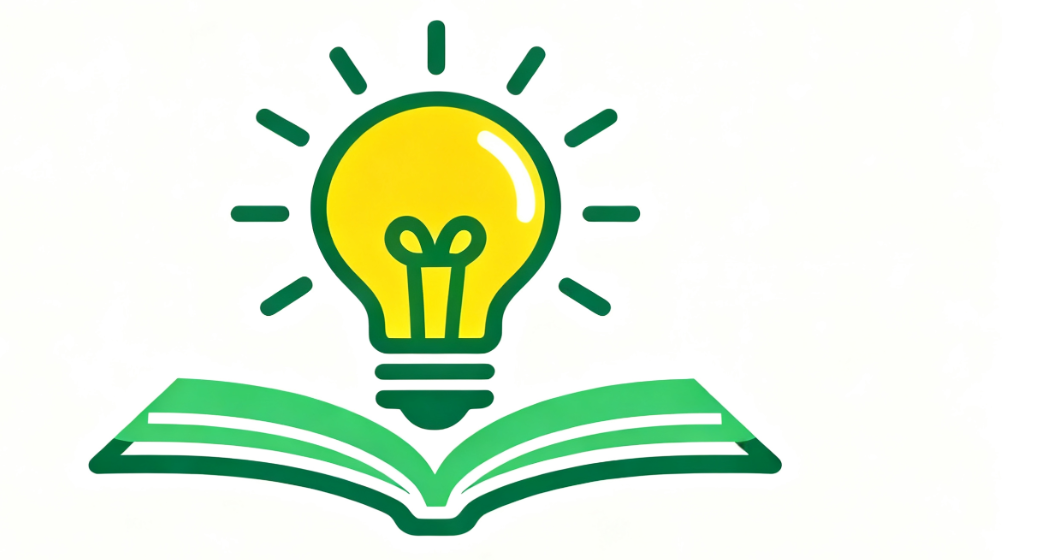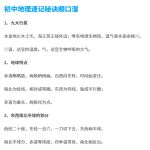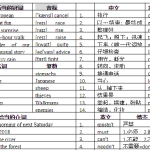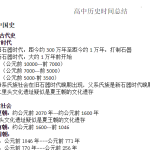【人教】八下英语语法知识点归纳
【人教版】八年级(下册)英语:语法知识点归纳
Unit 1 单元语法
一、 情态动词should的用法
should为情态动词,意为“应该;应当”,否定式为shouldn’t,其后接动词原形,无人称和数的变化。常用来表示征询意见、建议、劝告、要求或义务等。
You should drink hot water with honey. 你应该喝加有蜂蜜的开水。
He should put his head back. 他应该把头后仰。
We should try our best to help him. 我们应当尽力去帮助他。
You shouldn‘t watch TV. 你不应该看电视。
should用于主语为第一人称的疑问句,表示征询意见。
Should I put some medicine on it? 我应当给它敷上药吗?
Should we tell her about it? 我们应该告诉她这件事吗?
二、反身代词
英语中共有八个反身代词,在使用时应注意和它所指的相应的对象在人称、性别、数上保持一致。意为“某人自己”,不能表示 “某人的东西”,因为它没有所有格的形式。
可用作宾语,指的是宾语和主语表示同一个或同一些的人或事物。
- We must take care of ourselves well.我们必须好好照顾自己。
可用作主语或宾语的同位语,常用来加强语气。
- I met the writer himself last week. 我上周见到了那位作家本人。
反身代词不能单独做主语,但可以做主语的同位语,起强调作用。
- (误) Myself can finish my homework.
(正) I myself can finish my homework.
用在某些固定短语当中。
take care of oneself 照顾自己
teach oneself sth. 自学
enjoy oneself 玩得高兴,过得愉快
三、询问某人的健康情况及遭到麻烦的表达方法
(1) 询问某人患了何种疾病或遇到了何种麻烦时,常用以下几种结构来表达:
What’s the matter (with sb.)? (某人)怎么了?
What’s wrong (with sb.)? (某人)怎么了?
What’s the trouble (with sb.)? (某人)出什么事了?
What happened (to sb.)? (某人)发生了什么事?
Are you OK? 你没事吧?
Is there anything wrong with sb.?某人有什么事吗?
(2) 要表达身体疼痛或不舒服,用以下结构:
①某人+have/has+病症.
The twins have colds. 双胞胎感冒了。
某人+have/ has+ a + headache / toothache / stomachache / backache/ earache.
She had a stomachache last night. 她昨晚肚子痛。
③某人+have/has+a+sore+发病部位.
He has a sore throat. 他喉咙痛。
④某人+hurt(s)+身体部位或反身代词.
He hurt his leg. 他的腿受伤了。
⑤某部位+hurt(s).
My head hurts badly. 我头痛得厉害。
⑥某人+have/has+a pain+in one’s+身体部位
I have a pain in my chest. 我胸口痛。
⑦(There is) something wrong with one’s+身体部位.
There is something wrong with my right eye. 我的右眼有毛病。
⑧其他表达方式
She has a heart trouble. 她有心脏病。
He got hit on the head. 他头部受到了撞击。
She cut her finger. 她割破手指了。
小语法点
- What’s the matter?
这是人们特别是医生和护士询问病人病情时常用问句, 意思是“怎么了?”其后常与with连用。类似的有:
What’s wrong/up? 怎么啦?
What’s wrong with you? 你怎么了?
What’s your trouble? 你怎么了?
What’s the trouble with you? 你怎么了?
- have a cold 伤风, 感冒,
常用词组:
have a headache 头痛
have a stomachache 肚子痛, 胃痛
have a toothache 牙痛
身体部位+ache: (组成一个词)一般用来表示身体部位的疼痛
- headache 头痛; stomachache 胃痛;toothache 牙痛;backache 背痛;
sore+身体部位: (两个词) 一般用来表示身体部位的疼痛
- sore throat 嗓子疼;sore leg 腿疼;
- too much VS much too “太;太多”
too much +不可数名词 太多… eg. too much hot water 太多热水
too much 也可以用来修饰动词 太… eg. talk too much 说太多
much too +adj. 太… eg. much too hot 太热了
- see sb. doing sth. 看见某人正在做某事
- The driver saw an old man lying on the side of the road. 司机看到一位老人正躺在路边。
see sb. do sth. 看见某人做过某事
- I often see him draw pictures. 我经常看见他画画。
- 介词 + 名词/宾格代词/doing
- without thinking twice 毫不犹豫
without me 没有我
- to one’s surprise 使……惊讶的是,出乎……意料
But to his surprise, they all agreed to go with him.
- …because they don’t want any trouble, …
当trouble意为“困难;麻烦”时,是不可数名词。
- I’m sorry to give you so much trouble.
(1) be in trouble意为“有困难;陷入困境”。
- She always asks the teacher for help when she is in trouble.
(2) get sb. into trouble 意为“使某人陷入困境”。
- If you come, you may get him into trouble.
(3) 主语 + have / has trouble (in) doing sth. 意为“某人在做某事方面有困难”。
- I have some trouble (in) reading books.
当trouble意为“麻烦事;烦心事”时,是可数名词。
- She was telling me her troubles.
- right away 意为“立刻;马上” = in a minute = right now = at once
- He needed to go to the hospital right away. 他需要立刻去医院。
- be used to 习惯于……to是介词,其后+n./doing sth.
- As a mountain climber, Aron is used to taking risks.
- risk n. 意为“风险、冒险”
take risks 冒险
at the risk of 冒着可能……的危险
risk v. 冒险
e.g. Don’t risk your life. 别拿你的生命冒险。
- mean v. “……意思是” 或 “意味着”
- …before we have to make a decision that could mean life or death. ……在我们做出可能意味着生死的决定前。
Unit 2 单元语法
动词不定式
- 作主语
为避免句子的头重脚轻,常用it作为形式主语,而真正的主语动词不定式后置。
常用句型:
It + be + adj./n. + (for/of sb.) to do sth.
It takes sb. some time to do sth.
- 作宾语
want, decide, hope, ask, agree, choose, learn, plan, need, teach, prepare, volunteer…常接动词不定式作宾语。
- 作(后置)定语
常用于“have/has+sth.+to do”或“enough+名+to do” “It’s time to do sth.”等结构中。
- 作宾语补足语
tell, ask, want, invite, teach, like, call等可接带to的动词不定式作宾语补足语,构成tell/ ask/ want/ call/ invite sb. to do sth.结构。
【注意】 动词不定式作使役动词和感官动词的宾语补足语时应省去to:“一感(feel),二听(listen to, hear),三让(let, make, have),四看(look at, see, watch, notice),半帮助(help)”。
- 动词不定式表目的
- Mario Green and Mary Brown from Riverside High School give up several hours each week to help others.
小语法点
- used to do sth. 过去常常做某事
表示过去习惯性、经常性的动作或状态,暗指现在已经不做了。used无人称和时态的变化。
- They told me stories about the past and how things used to be. 他们给我讲过去的故事,告诉我过去都是什么样儿。
- 辨析:lonely 与 alone
lonely adj. 孤独的;寂寞的。指精神上感觉孤独、寂寞。
alone adv. 独自;单独; 独自一人(但不定感觉寂寞)
- Yeah, a lot of old people are lonely. 很多老年人都很孤独。
He lives alone, but he daoesn’t feel lonely. 他一个人住,但是他不觉得孤单。
- clean up “打扫;清理”, clean-up n. 意为“扫除”。
e.g. You must give your classroom a good clean-up. 你必须对教室进行彻底地打扫。
- come up with 提出(观点,看法)。
e.g. He has come up with a great idea. 他想出了一个很好的办法。
We need to come up with a plan for the City Park Clean-up Day.
- to do sth.不定式表示目的
- Mario Green and Mary Brown from Riverside High School give up several hours each week to help others.
to help others 作目的状语。是“每周拿出几个小时”的目的。
- help sb. (to) do sth. 帮助某人做某事;
help后的不定式符号to,可以省略。
- Mario believes it can help him to get his future dream job.
马里奥相信这会帮助他获得他的梦想职业。
She still works there once a week to help kids learn to read.
她仍旧在那里一周工作一次帮助孩子们阅读。
- …but I want to learn more about how to care for animals.
但是我想学习更多关于如何照顾动物的事。
1) want to do sth. 想要做某事, to不定式做want的宾语。
2) learn about sth. 学习关于…
3) care for 关心照顾
4) how to care for animals是复合不定式结构,作介词about宾语。相当于:特殊疑问词+ to不定式,构成复合不定式结构。(how he could care for animals).
- decide to do sth. 决定去做某事,to不定式做宾语。
- Last year, she decided to try out for volunteer after-school reading program. 去年,她决定参加一个志愿者课外阅读的活动。
- 辨析: sick 与 ill
sick 可作定语修饰名词,而ill只能做表语。
- The mother cared for the sick girl day and night. 妈妈日夜照料着生病的女孩。
- Jane was ill/sick yesterday, so she didn’t go to school. 昨天简生病了,她没去上学。
- raise v. 募集;征集
e.g. They sold something to raise money. 他们卖掉一些东西来募集钱。
- repair v. 修理;修补
e.g. He repaired the tcar. 他修车。
- fix v. 安装;使固定 fix up 安装
e.g. The nail doesn’t fix well. 这个钉子不牢固。
- give away 赠送;捐赠
e.g. They gave away 5,000 bags for shopping. 他们赠送了五千只购物袋。
- I’m sure you know that this group was set up to help disabled people like me.
set up 建起;设立
disabled adj. 丧失能力的;有残疾的
dis (否定前缀)+able (能够)=disabled
- make a difference 影响;有作用
- Lucky makes a big difference to my life. Lucky对我的生活产生了很大的影响。
- imagine v. n. 想象;设想
- Or imagine you can’t walk or use your hands easily.
或者想象一下你不能走路或者不能轻易用手。
imagine doing sth. 想象做某事
- I imagine being a bird. 我想象自己变成了一只鸟。
- difficult adj. 困难的
difficulty n. 困难;难题 可数名词
- …but many people have these difficulties.
have difficulty in doing sth. 做某事有困难
- We don’t have difficulty in learning English. 在学习英语方面我们没有困难。
- train v. 训练;培训
training n. 训练;培训
trained adj. 受过训练的
tell sb. about sth. 告诉某人关于某事
- She talked to Animal Helpers about getting me a special trained dog.
train sb./sth. to do sth. 训练某人做某事
- We trained a dog to guide for us.
- 辨析:exciting与excited
exciting意为“另人兴奋的”,常用于修饰事物;
excited意为“激动的”,常用于修饰人。
- I love animals and I was excited about the idea of having a dog.
- understand v. 理解;领会 (understood)
- Lucky is very clever and understands many English words.
- such VS so 如此
such + a/an + adj. + 可数名词单数
such + adj. + 不可数名词/可数名词复数
- such a strong feeling of satisfaction 一种如此强烈的满足感
so+ adj. + a/an + 可数名词单数
- so nice a girl 如此好的一个女孩
=such a nice girl
- make it+ adj. +for sb. to do sth. 使做某事对某人来说…
- make it possible for me to have Lucky 让我拥有Lucky成为可能
- kindness n. 善良
adj.+ness=n.
常见的词汇:
illness 疾病/生病
sadness 悲伤
- be strong in 擅长…





